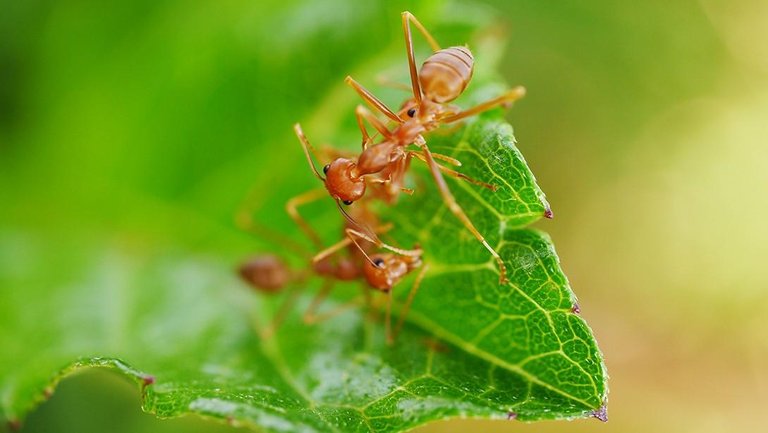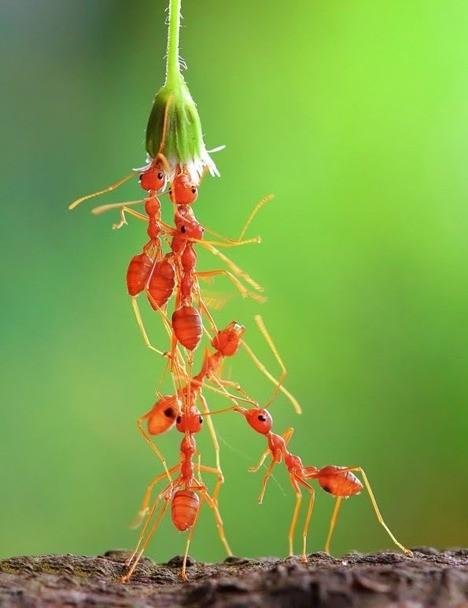
Some scientists are doing research on ant colony sleeping habits. The team, composed of Deby Cassill from the University of South Florida, St. Petersburg, consists of four scientists, including Casill himself.
Three other colleagues are Skye Brown and Devon Swick from the same university as Cassill, and George Yanev from the University of Texas, Arlington, USA. The four did research on the type of fire ant, Solenopsis invicta.

Cassill and three colleagues conducted the study in a laboratory by creating three nests consisting of three queen ants, 30 worker ants, and 30 large larvae. The ants are placed in a container made of glass to be monitored and recorded.
Because the type of fire ants generally live beneath the soil, scientists hope the ants' sleeping habits are unaffected by light and dark cycles in the room.
Based on their research, it is known that worker ants have sleep habits that are different from other creatures and not the same at a time.
An ant worker can sleep as much as 250 times a day. Each ant in this caste has a duration of sleep approximately 1 minute. If totaled they only sleep for 4 hours 48 minutes every day. This means, every worker ants spend 80% of their day working actively.
"The large number of sleeping ant habits indicates that their nests are always kept at all times, and there are always worker ants available when needed," Cassill said.
The opposite is precisely seen in the queen ants. The colony's leader had a longer sleep interval, even having the same habit. It is known that the sleep habits of the three queen ants have the same duration.
The average of them sleep as much as 90 times a day. Every time a bed, the queen ant will sleep about 6 minutes. This means that their sleep time in a day reaches more than 9 hours.
Because of his heavy duty, the age of working ants is shorter than the queen. They have the risk of dying against enemies or while searching for food. Maximum age alone 6 months to 1 year.
Amazingly the queen could live six years before her. Goodbye for six months to a year or die while looking for food, "explains Cassill.
What an incredible way to learn from nature. Great photo, too! Nice post!
Also upvoted!
Thank you @intuitivejakob
Wow ! Amazing pictures ! Upvoted from @chanthasam
Thanks @chanthasam
nice post so far you keep it up the good work hey i have really beautiful blog check out my blog i hope u like it
Allright @harrycarguy
Thanks @harrycarguy
wow nice post I like it this post,I will support you,upvoted
Thanks @holl.boll